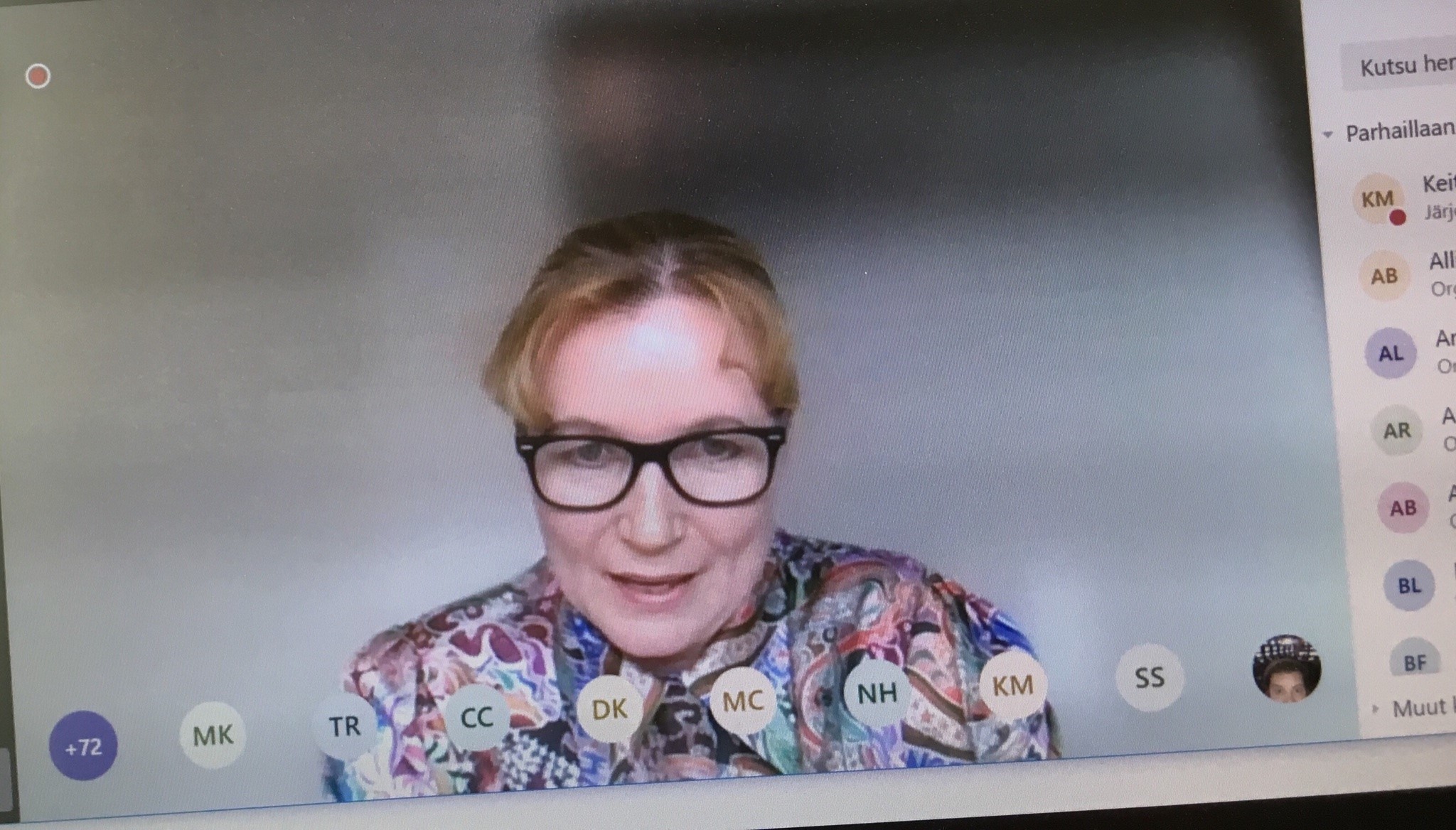Permanent Mission of Finland hosted a webinar on sustainable post-COVID-19 recovery.
The unexpected outbreak of global pandemic caused by coronavirus has changed daily lives and put unpreceded pressure on societies around the world. As trade plays a key role in economic development and as an engine for achieving the sustainable development goals (SDGs), it will be a key for recovery. The ongoing crisis serves as a chance to reform economies, to create a more resilient and sustainable future and accelerate transition to low-carbon Circular Economy.

To contribute to this important discussion, the Permanent Mission of Finland to Geneva hosted a webinar Post-COVID-19 recovery – Sustainable ways to rebuild the economy with the help of trade on Monday, May 11th 2020.
The distinguished speakers included Ms. Mari Pantsar, Director, the Finnish Innovation Fund Sitra, Co-chair of the national working group on sustainable recovery, Dr. Richard Damania, Chief Economist, Sustainable Development Practice Group, World Bank, Ambassador, H.E. Chad Blackman (Barbados), who serves as the Chair of the WTO Committee on Trade and Environment, and Mr. Crispin Conroy, Representative Director of the ICC Geneva Office. The event was moderated by Dr. Carolyn Deere Birkbeck, Senior Researcher, Graduate Institute Geneva.
In her opening remarks, Ambassador, H.E. Terhi Hakala (Finland) stated that exceptional times provide a chance to develop new ways of working and to re-energize discussions at the WTO. Finland is a strong supporter of the rules-based multilateral trading system and ambitious global climate action and has been an advocate of circular economy from both trade and sustainability point of view for years. Ambassador Hakala reminded that as the acute pandemic is not only a health crisis but increasingly also an economic, human and human rights crisis, it serves as a reminder and warning of another crisis just around the corner.
Director Mari Pantsar from the Finnish Innovation Fund Sitra presented a working paper(Link to another website.) on sustainable recovery measures and the Finnish vision on rebuilding the economy sustainably. The measures have potential to support the Finnish economy in a way that they are in line with solutions aimed at resolving the sustainability crisis. Ms. Pantsar discussed e.g. a set of taxation and other measures that could also support long-term structural changes. She also elaborated on various trade policy- and trade rule-linked issues, such as viewing trade through sustainability lenses and eliminating harmful and market distorting fossil fuel subsidies.
Chief Economist of the World Bank, Dr. Richard Damania described the economic shock caused by the novel coronavirus “massive and astonishingly fast, largest since the World War 2”. Dr. Damania stated that a different type of recovery is needed and that large stimulus packages provide "our generation the once in a lifetime chance" to rebuild wisely, which would prevent even worse environmental state and climate change related risks from accentuating. Dr. Damania suggested governments should analyze the set of recovery measures through certain criteria, taking into account not only the GDP impact but also e.g. job creation (jobs created per dollar used) and sustainability impact.
Chair-elect of the WTO Committee on Trade and Environment (CTE) , Ambassador, H.E. Chad Blackman (Barbados) provided his vision on how the CTE could support discussions on the role of trade policy in the post-COVID-19 recovery and especially on how trade factors in transition to a low-carbon Circular Economy, which has attracted a lot of interest among the WTO members recently. Trade can help build a more resilient global economy and trade policy has a vital role. More cooperation is needed between various stakeholders to break down silos and work more coherently and efficiently.
The role of the private sector is vital in the recovery. Representative Director of the ICC Geneva Office, Mr. Crispin Conroy presented the key messages from the business sector: The WTO must push back against the threat of increasing protectionism, which is a great concern to the business sector; the WTO reform must be carried through and new rules must be develop when there’s a need.
The following discussion spanned from concrete domestic measures to importance of trade rules, interlinkages between trade and environment, the sensitivity yet importance in designing the stimulus packages with a long-term perspective in mind and greening of Aid for Trade whilst facing the challenge of possibly lower levels of the ODA. You may listen the webinar here(Link to another website.).
The webinar series will continue in the beginning of June when the next webinar (invitation only), “Post-COVID-19 recovery –Sustainable stimulus measures and opportunities for trade and environment”, takes place. More information will follow shortly.
Maarit Keitanen
First Secretary, Trade Policy Issues, WTO
Permanent Mission of Finland in Geneva

